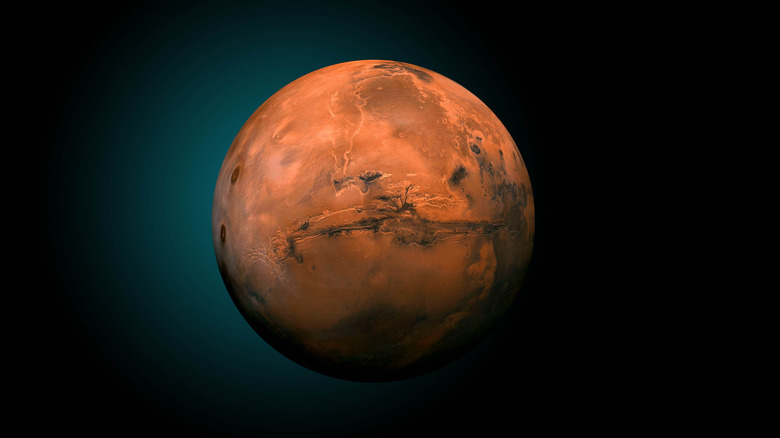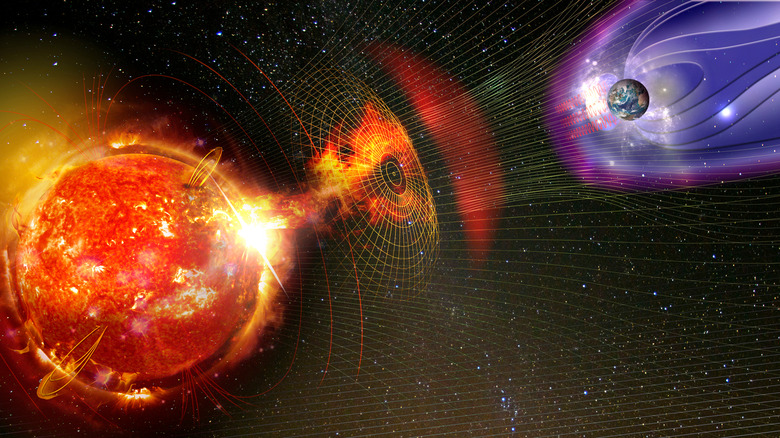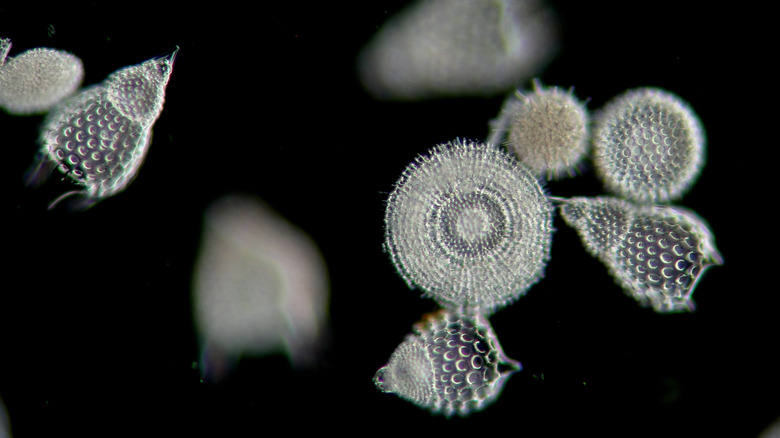Why French Scientists Believe Mars Could Have Hosted Life Billions Of Years Ago
On October 10th, 2022, a French study was released that proposed that the climate of ancient Mars might've had the serious possibility of hosting microscopic life, according to ABC News. However, the study claims that if life did exist on the Red Planet, it most likely changed the atmosphere to a point where it caused an ice age that wiped them out, causing Mars to go barren. The lead author of the study, Boris Sauterey, said of the findings '[simple life] might actually commonly cause its own demise," per ABC News.
The researchers used climate and terrain-modeling technology to analyze a Martian climate 4 billion years ago, the time period when scientists believe there was water and a warm atmosphere, much like primordial Earth. They claim that it was very possible for Mars to have microbes living just a few inches beneath its surface, being a safeguard against solar radiation. The models suggest that anywhere that didn't have ice would've been suitable for life.
Mars becoming a wasteland
The researchers suggest that the light atmosphere on Mars is the main culprit for why the wet and warm conditions on the planet dissipated over time. Unlike Earth, Mars doesn't have a planetary magnetic field that encompasses the entire planet. On Earth, this field acts as a shield from cosmic forces that would disrupt the temperate climate on our planet, such as solar winds or solar storms.
Solar winds are a collection of plasma from the sun's corona, which spread outward past the sun's outer layer that expands across the entire solar system, however, Earth's magnetic field deflects the plasma and protects the atmosphere from being affected (via NASA). On Mars, the solar wind is believed to have slowly chipped away at the atmosphere, thinning it out to the point where it wouldn't be able to support a temperate climate. The new study suggests that Martian microbes might've also played a part in this, however, by eating up all the hydrogen in the ancient atmosphere (via ABC).
What the study means
The study claims that as the microbes continued to use the hydrogen in the atmosphere for energy, and the other remaining hydrogen escaped into space due to the weak magnetic field and solar winds, that Mars underwent a severe ice age, according to ABC News. The microbes would've been forced to either go deep underground or face extinction, which could explain the barren wasteland we see on the Red Planet today. However, the study seems to confirm one thing for certain: if there was microscopic life, they definitely affected the climate, and that could be analyzed.
The researchers in the study say that there would be some regions on Mars that would be exceptional for doing further research, one of these areas being the Hellas Planita or the Jezero Crater in the Isidis Planita region, which NASA's Perseverence rover is currently studying and collecting rocks for further examination on its return in 2033, according to ABC News. When these rocks return and scientists continue to do further testing, it could finally answer the age-old question, are we alone?


